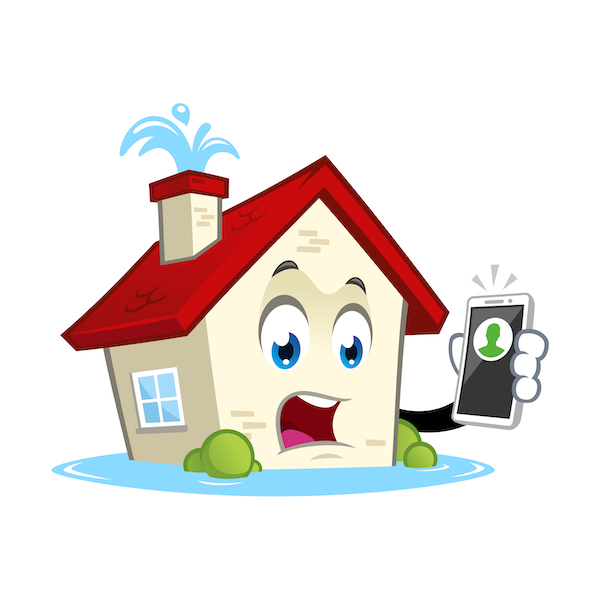For years, everyone has been aware of the importance of reducing our impact on the environment by being mindful of how we use natural resources. And now, with the current economic woes, it makes so much more sense to conserve as much as possible to save hundreds (possibly even thousands) of dollars on our monthly utility bills.
Water leaks are one of the most common culprits that can rob you of extra money every month while also draining the local supply. These leaks appear without a heads up and often go undetected until it is too late.
Here we will show you a few ways to detect these pesky water leaks, as well as when it is best to call a plumber to fix a problem.
Doing Things the Old-Fashioned Way
Most folks will not realize they have a real problem until they get that monstrous water bill in the mail and it may be too late by then. On the other hand, the problem may be easy to fix if they take detecting water leaks seriously and put on their detective hats to find the source of the leak. Here are two methods to do that:
Sight and Sound
The first method is to use sight and sound to detect where there may be water leaks. Checking for leaks room by room is the safest bet.
Working with the bathroom, look for leaks in the showerhead, faucet, and toilet tank. One easy way to tell if the problem is in the toilet is to see if the water drains from the tank to the bowl without being flushed first. If you notice any ripples on the surface of the water in the bowl, it is possible that water is leaking from the toilet tank.
You can also confirm any leakage problems by adding a few drops of assorted food coloring to the water. Walk out of the bathroom and return in 5 to 10 mins. If the color has moved from the tank to the bowl, you most certainly have a leaking tank.
Check Appliances that Use Water
If you have not spotted a leak after checking all of the sinks, pipes, and faucets in the house, it is time to look at all the appliances directly connected to your water source including dishwashers, washing machines, water heaters, etc.
There have been countless reports of excessive utility bills caused by a blown seal in a washing machine or water heater that went undetected for months. Many of these issues could have easily been avoided with a simple visit from a residential plumbing service provider.
When inspecting appliances for potential water leaks, look for two things:
- Standing Water: Standing water, even a tiny amount, may signal that water is leaking from the water heater or washing machine. Remember, if standing water is anywhere near wires, it could become a dangerous situation.
- Musty Odor: Musty odor indicates that mold is taking shape in the dampness and must be removed before it worsens. Be sure to investigate thoroughly and call an experienced plumber to help remove and fix the issue.
Found Nothing Inside? It’s Time to Look Outside.
If there is a pipe leak in any connecting lines from your water source to your home, you will see springy and wet patches of ground.
Wet ground caused by water leaking from city pipes will be damp but not necessarily sodden, as it is when a septic tank leaks. Furthermore, there may be no odor associated with it.
If there are any signs, it’s time to contact a professional to determine if the leak repair will be on your dime or the city’s.
Make the Most of Technology
You can install one of two types of leak detection devices in your home to prevent future leakage problems.
- Passive: consists of stand-alone battery units equipped with a moisture sensor. If it senses moisture, it will set off an alarm to alert you to the potential risk of a leak.
- Active: will also set off a warning, but it will automatically turn off the water supply if it senses moisture.
Do you want to learn more about water leak prevention? At E & K Contractors, we are here to help you in any way we can to prevent damages caused by water leaks to your home. Give us a call at 419.474.9454 or contact us online with any questions or concerns you may have.

